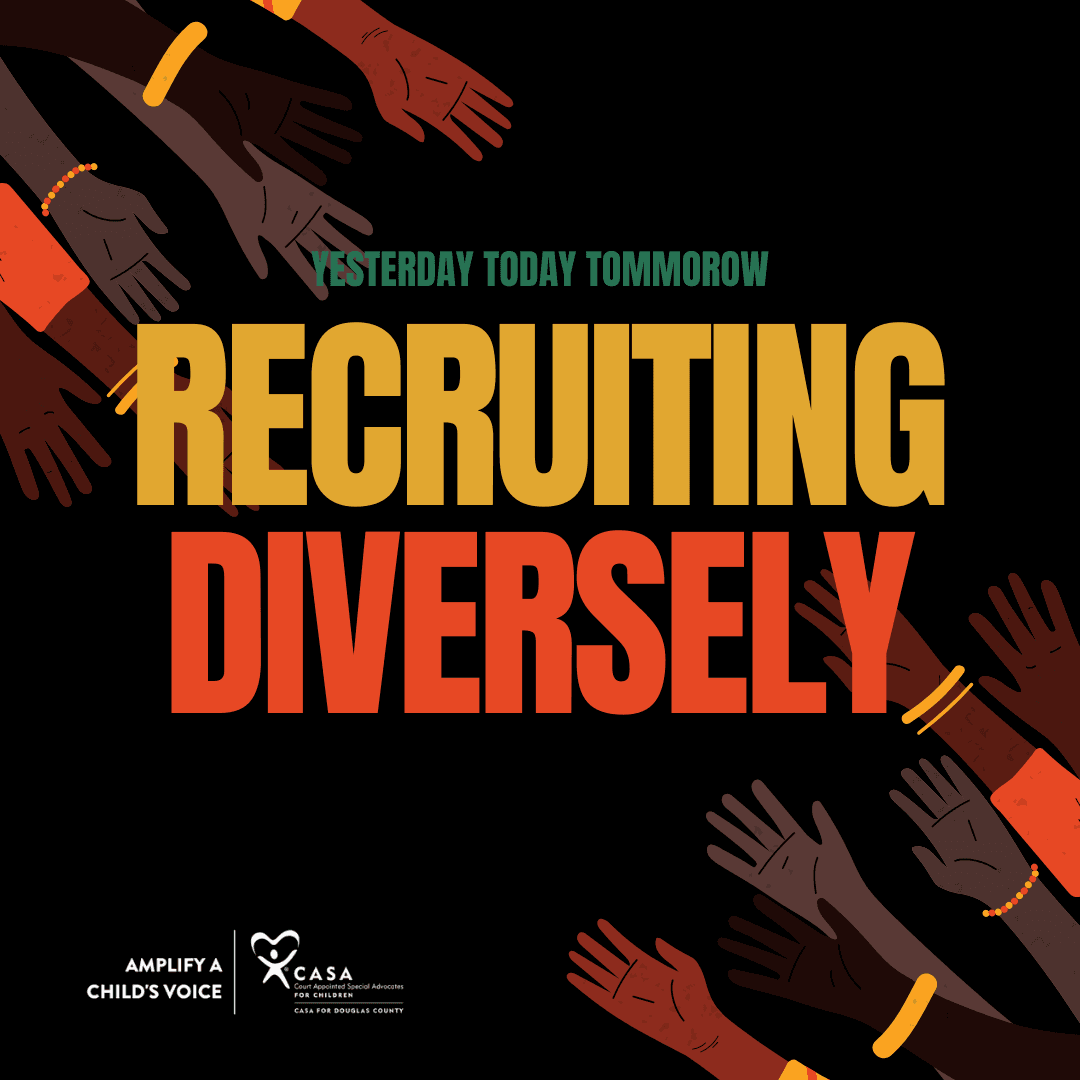
As we commemorate Black History Month, it's essential to reflect on the significance of diversity and representation within organizations like CASA (Court Appointed Special Advocates) for Douglas County. While the child welfare system aims to support children and families from all backgrounds, the reality is that Black children and families are disproportionately represented within the system. While addressing this disparity, it becomes crucial to empower and recruit diverse advocates representative of the children we serve.
Understanding the Disparities
According to national statistics, Black children are overrepresented in the foster care system. In Douglas County alone, Black children make up a significant portion of those involved in the child welfare system. According to the Nebraska Foster Care Review Office, as of September 30, 2023, 32% of all children in Out-Of-Home or Trial Home Visit placements identify as Black, Non-Hispanic. From July 2022 – June 2023, CASA for Douglas County served 485 children, 40% of them identified as Black. However, only 5% of our CASA Volunteer Advocates identify as Black/African American.
Understanding the complexities of disparities in the child welfare system is crucial. In a 2020 review published by Jude Mary Cénat, Sara-Emilie McIntee, Joana N. Mukunzi, and Pari-Gole Noorishad from the School of Psychology at the University of Ottawa, Ontario, Canada, titled "Overrepresentation of Black children in the child welfare system: A systematic review to understand and better act," the authors aimed to confirm or refute the existence of racial disparities and the overrepresentation of Black youth in child welfare services in countries where Black communities constitute a minority, among other objectives. Their findings revealed “two categories of factors: sociodemographic (gender, age, race and socioeconomic status) and racial discrimination (associated with referrals, investigations, and caregivers), were identified as contributing to these disparities.” Identifying these problems is crucial to ignite change from the root.
“In my opinion, in order to adequately address overrepresentation of Black children in child welfare, steps must be taken at all levels of the system to address practices that may be discriminatory in nature,” says Lindsey Stennis, Board of Directors Chair-Elect, and Deputy County Attorney at the Douglas County Attorney’s Office. “It seems simple at face value, but requires a great deal of intentionality. At the most basic level, educating case professionals in the child welfare system on the history and prevalence of disproportion and the factors that have contributed to disproportion is extremely important. Implementing policies and procedures at the various levels and system entry points, that are culturally sensitive and trauma-informed, is also very important.”
Diversity isn't just a buzzword; it's a cornerstone of effective advocacy and support. Diverse CASA Volunteer Advocates bring unique perspectives, experiences, and cultural insights to the table, enriching the work of CASA for Douglas County and ensuring that all children receive equitable and inclusive representation. By recruiting more Black people from our community as Advocates, CASA can better represent the children we serve and provide more culturally competent support to children and families impacted by the child welfare system.
We Need You
Recruiting diverse Volunteer Advocates at CASA for Douglas County may come with its challenges, including overcoming systemic barriers, addressing historical mistrust of the child welfare system, and providing adequate support and resources for volunteers. However, it's also an opportunity to foster meaningful connections, empower them to make a difference in their communities, provide equitable services, prioritize transparency, and break down stereotypes about who can be an effective advocate.
“Racial discrimination in U.S. child welfare is, in other words, a human rights issue,” says Kimberly C. Barnes, Executive Director at CASA for Douglas County. “We should all be concerned as the data is clear and glaring. The best and most meaningful way to eliminate the disproportionate treatment and overrepresentation of Black children in child welfare is policies and practices that have a disparate impact on families of racial and ethnic minorities, such as the Child Abuse Prevention and Treatment Act. This will be a start to rebuilding an equitable Child Welfare System. Additionally, representation is the key to ensure transparency and impactful voices are at the table while implementing policies and practices.”
Empowering a diverse group of people to become advocates for children impacted by the child welfare system is not just about representation; it's about creating lasting change and breaking cycles of inequity and injustice. By amplifying the voices of Black children who have experienced trauma related to abuse or neglect, we can inspire others to step up, get involved, and make a difference in the lives of children with a focus on breaking generational curses.
If you're interested in making a difference in your community, consider becoming a Volunteer Advocate with CASA for Douglas County. Your unique perspective and experiences can help shape the future of our community. Together, we can create a more inclusive and equitable society for all. Join us in empowering Black children and families.

